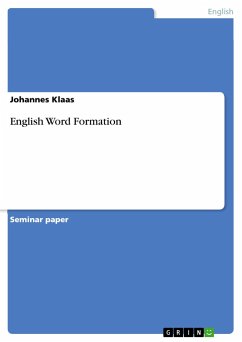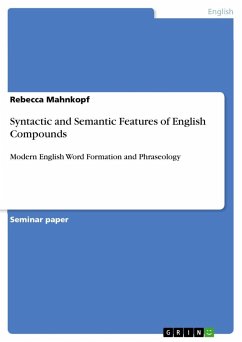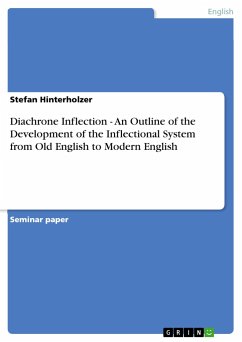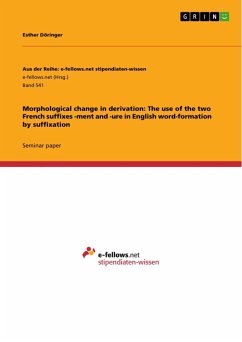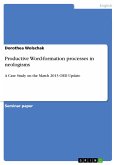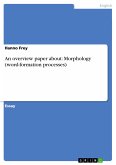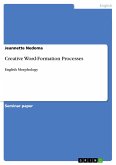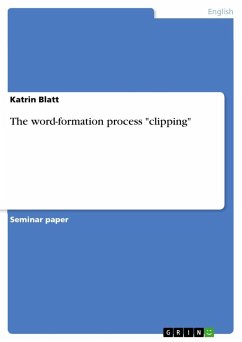Seminar paper from the year 1998 in the subject English Language and Literature Studies - Linguistics, grade: 2,3 (B), University of Cologne (English Seminar), language: English, abstract: I.Aronoff, Selkirk and Lieber on the structure of the English lexicon and the nature and use of word-formation rules.In the wake of Chomsky's "Remarks on Nominalization" (1970), in which Chomsky makes a strict distinction between syntax and derivational morphology, Aronoff (1976) proposes a word based theory of the lexicon. This lexicon is a separate component of the grammar in which derivational word formation processes are dealt with. This hypothesis is called strong lexicalist hypothesis. Aronoff suggests that inflection and compounding are not taking place in the lexicon but in the syntax (Spencer 1991: 82). As to the nature of the listed lexical items Aronoff does not go along with Halle who in 1973 assumed that the lexicon is made up of three lists: a list of morphemes, a list of actual words, and a list of words that are regularly formed but are non-existent (McCarthy 1992: 25). In his theory Aronoff reduces the three lists to one single list, stating that it could only be words that are listed in the lexicon, not morphemes. A reason for this assumption is that morphemes, other than words, are not persistent in meaning and sometimes they do not seem to have any meaning at all. A good example for meaningless morphemes are the so-called cranberry morphemes. [...]
Hinweis: Dieser Artikel kann nur an eine deutsche Lieferadresse ausgeliefert werden.
Hinweis: Dieser Artikel kann nur an eine deutsche Lieferadresse ausgeliefert werden.

